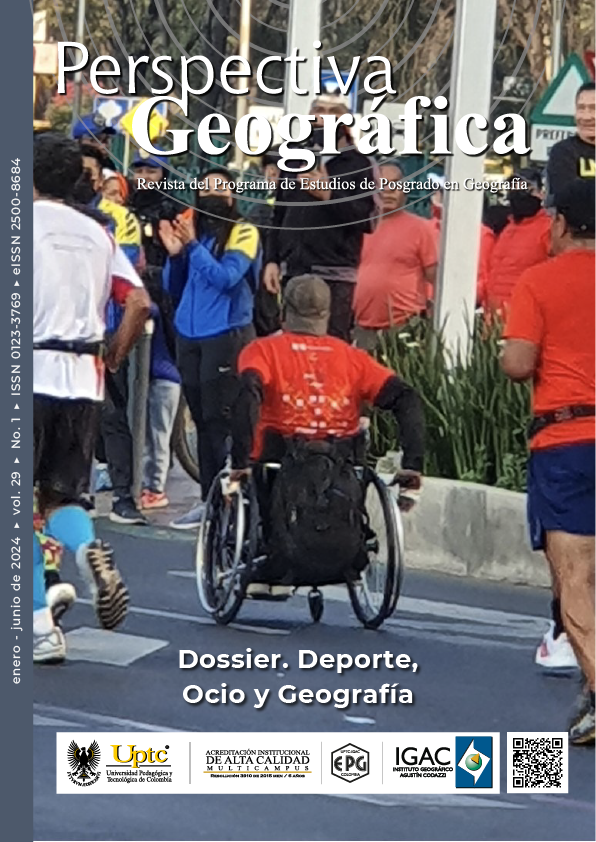International sports organizations: FIFA and the IOC seen through political geography

Abstract
The International Federation of Association Football (FIFA) and the International Olympic Committee (IOC) are two international sports organizations with an instrumental functioning within large international corporations. They also have influence in national states through the generation of ecological discourses and investment funds in public works, which leads them to be a key player in the production of capital spaces. Sports companies have become a fundamental actor in understanding the mechanisms of social and cultural alienation for many members of the working class, but this would not be understandable without international sports organizations that function as intermediaries between companies and the consumer population. Political geography, in its critical aspect, is crucial for the analysis of this process of production of the space that generates this process of intermediation between sports companies, institutional organizations and consumers of professional sports.
For this, an inductive methodology was carried out, since the work arises from an investigation into the role of international organizations in the countries organizing mega sporting events.
Keywords
sports, political geography, Olympic Games, International organization, can, geography
Author Biography
Dante Guillermo Celis Galindo
Dr. en Geografía de la Universidad Nacional Autonoma de México. Profesor de la Facultad de Filosofía y Letras de la Universidad Nacional Autonoma de México. México.
Octavio Augusto Montes Vega
Dr. en Antropología de El Colegio de Michoacán. Profesor de El Colegio de Michoacán, México.
References
- Álvarez, R. (2021, enero 22). El COI y Japón reiteran su compromiso de celebrar los Juegos Olímpicos este verano. El País. https://elpais.com/deportes/2021-01-22/el-coi-y-japon-reiteran-su-compromiso-de-celebrar-los-juegos-olimpicos-este-verano.html
- Anderson, B. (1993). Comunidades imaginadas. Reflexiones sobre el origen y la difusión del nacionalismo. Fondo de Cultura Económica.
- Brohm, J. M. (1993). 20 tesis sobre el deporte. En J. I. Barbero (comp.), Materiales de sociología del deporte (pp. 46-55). La Piqueta.
- Cairo, H. (1997). Los enfoques actuales de la geografía política. Espiral, 7(9), 49-72.
- Harvey, D. (2006). Breve historia del neoliberalismo. Akal.
- Harvey, D. (2012). El enigma del capital y la crisis del capitalismo. Akal.
- Lefebvre, H. (2013). La producción del espacio. Capitán Swing.
- Luke, A. (2012). El deporte como objeto de reflexión e investigación geográfica. Boletín de la Asociación de Geógrafos Españoles, 59, 49-77.
- Montero, J. (2019). Empresarios y producción espacial en torno al club de Fútbol León en México. Pucara, 1(29), 9-30. https://doi.org/10.18537/puc.29.01.0
- Ortega, J. (2000). Los horizontes de la geografía. Teoría de la geografía. Ariel.
- Peet, R. (2004). La maldita trinidad. El Fondo Monetario Internacional, el Banco Mundial y la Organización Mundial del Comercio. Laetoli.
- Pulleiro, C. (2016). Los megaeventos deportivos en los BRICS: un cuestionamiento a su rendimiento. Revista CIDOB d´Afers Internacionals, 112, 199-223. https://doi.org/10.24241/rcai.2016.112.1.199
- Raffestin, C. (2018). Territorio, frontera, poder. Icaria.
- Reyes, M. (2006). Política deportiva: factores reales del sistema deportivo. Liberabit, 12, 87-94.
- Rodríguez, Á. (2008). El deporte en la construcción del espacio social. Centro de Investigaciones Sociológicas.
- Rodríguez, D. (2003). Aproximación teórica y metodológica a la historia del deporte. Minius: Revista do Departamento de Historia, Arte e Xeografía, 11, 195-210.
- Saboya, A. & Noguera, J. (2014). Mega Sporting Events and Legacy: The Case of the 2014 World Cup. Regional Studies Association. https://www.regionalstudies.org/wp-content/uploads/2018/07/Airton_Saboya_Valente_Junior-1.pdf
- Talledos, E. (2014). La geografía: un saber político. Espiral, Estudios sobre Estado y Sociedad, 21(61), 15-49. https://doi.org/10.32870/eees.v21i61.263
- Uribe, G. (1996). Geografía política. Verdades y falacias de fin de milenio. Nuestro Tiempo.
- Uribe, G. (1999). Tiempo libre, globalización e identidad cultural. Mimeo.